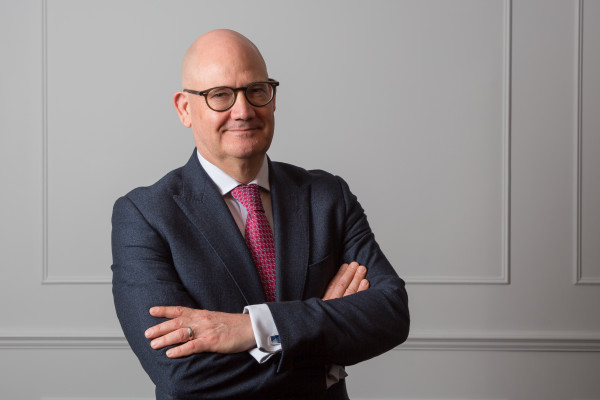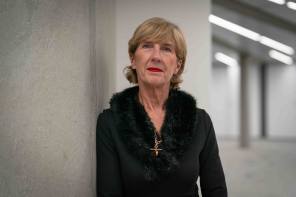

Simon Melling was enjoying a genial semi-retirement after 30 years in the investment industry, when a group of old contacts got in touch to ask him if he wanted to roll the dice one more time and join their start-up wealth management business as chief executive and shareholder.
He says it took him “five seconds” to say yes.
Melling had set his mind on semi-retirement, buffered by a number of non-executive director positions at both financial and non-financial businesses, and some work running the family investment office of Hargreaves Lansdown founder Steve Lansdown, but when the offer came in 2018, he says, he snapped it up.
The company in question is Vermeer Partners, a discretionary and advised investment management business with £1.7bn of funds under management after just more than three years in operation.
Melling was working as head of corporate finance at Ravenscroft, a stockbroking and investment management company based in Guernsey.
He was working on a possible merger and acquisition transaction with Ravenscroft, and during the course of it encountered a group of wealth managers who had worked at Cheviot, and then at Quilter Cheviot.
He says: “The M&A deal didn’t happen, but I said to the guys that had been at Quilter Cheviot that they should set up on their own, they had the experience, they had the clients, and when I said it, it really was just advice to them, it was not meant as a job request.”
Several months later the wealth managers came back to him and said they were setting up the business, but wanted him as chief executive.
The business is structured as a partnership, with around 30 of the 41 employees having an equity stake.
He says: “We made the decision very early on to structure it as a sustainable partnership and fund it ourselves, so that we didn’t have to give too much of the equity away, other than to the working partners.
"We have also brought in some previous Cheviot partners who have retired but who have important client relationships. No one owns more than 7 per cent of the firm, and the intention is that when current partners retire, they will sell their partnership equity to the next generation.
"That might mean when they sell it's not for the absolute top, top price, but they are prepared to tolerate that. We are trying to be good corporate citizens and replicate the model that accountancy firms, lawyers, and even the big investment banks had before the financial crisis."
Melling’s career to that point had involved roles as chief executive of listed stock broker business Cenkos Securities, finance director at Interactive Investor, and finance director and chief operating officer at Collins Stewart, a brokerage business that was at that time headed by subsequent Fundsmith manager Terry Smith.
He describes Smith as a “workaholic” but also as “probably the most intelligent person I have ever met”.
Melling says he believes the early, key decision made by Vermeer was to outsource most regulatory and administrative functions to Pershing, a subsidiary of BNY Mellon.
This meant Vermeer could be set up with £5m of the shareholders' money, whereas with a different structure it might have required £10m to start the business, something that might have required outside shareholders.
He says that while many of the investment managers are at the later stages of their careers, "they do not want to happen here what has happened in the past, which was: they built up businesses, but because there were outside shareholders, the business was sold. That is why we took the decision to fund the launch ourselves".
Business style
Melling notes: "The company is structured into teams, and for clients, the relationship manager they have is also the money manager. But the teams are structured to have different generations, and as the older partners retire, the next generation can step up, both within the team, and within the partnership."
They launched the business by buying an existing fund called Vermeer Global equity, which continues to exist and has external money in it, alongside funds that come from Vermeer clients.
He hopes the potential to become a partner in a business, and own some of one’s employer, will help him to entice teams to defect to Vermeer in future, and this, rather than acquisitions, is how he wants growth to happen.
Melling’s career has spanned the era of dealing that mostly happened via paper, fax machines and landline telephones, to the present era of rapid trading via computers and electronic messages.
The world after the Retail Distribution Review and other such regulatory changes has presented many challenges for new and incumbent businesses, but he says the benefits of scale on profitability really come in after assets hit £2bn, as after that level one does not need to add many new staff, and technology makes it easier to outsource functions.
He says another outcome of regulations is that the cost of buying in equity and fund research has fallen dramatically, with the accessibility of this meaning they can compete against much larger businesses who can employ people in roles such as chief economist.
Another change relative to when Melling started in the industry is the rise of environmental, social and governance investing. He says: “Every day I get four or five invites in my inbox from people who want to sell me something or watch a webinar about their product.
"At the moment, we can do an ESG portfolio if that is what a client wants, but longer term I think there is a need for greater clarity from the market about the definitions of ESG and about the role different ESG products can play in a portfolio.”
Of his business's plans for the future, he says: “We are not looking to dominate the market, not to be the next Brewin Dolphin; scale and volume is not for us. We want to grow the business, but not stupidly fast. I think the culture of a business changes once it goes beyond 100 employees – but that would be more than double the number we have now.”
David Thorpe is special projects editor of FTAdviser



